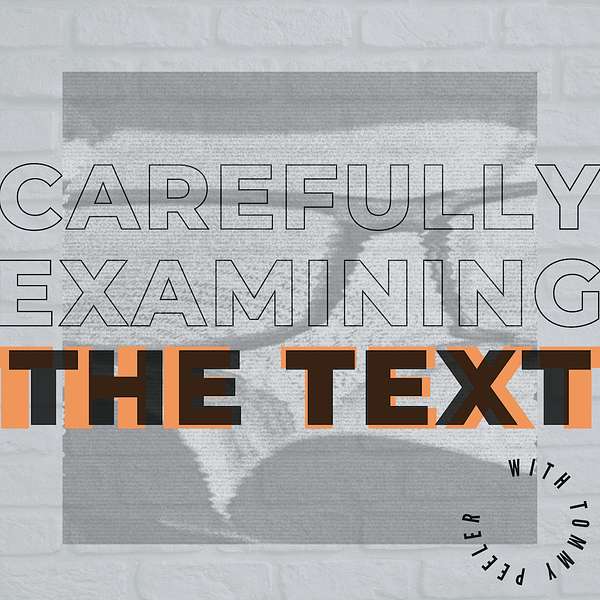
Carefully Examining the Text
Carefully Examining the Text
Psalm 140
Use Left/Right to seek, Home/End to jump to start or end. Hold shift to jump forward or backward.
Psalm 140
For the choir director, A Psalm of David
“Psalm 140 is clearly an individual lament, with its appeals to God to listen and rescue (vv. 1, 4, 8), its complaints concerning the wicked who intend to harm the psalmist (vv. 2-3, 5), its imprecation (vv. 9-11) and its note of confidence (vv. 6-7, 12-13)” Longman, 455.
“In the present literary setting, the petitions in Psalm 140 can be understood as an elaboration of Ps. 139:19-22…Psalm 140 also anticipates Psalms 141-143” McCann, 1240. Psalms 141-143 are also individual laments.
“Psalm 140 is another prayer psalm about personal enemies. They are described in the familiar categories of ‘the righteous; (vs.13) and ‘the wicked’ (vv. 4, 8). These ‘men of violence’ (vv. 1, and so they ‘devise evil’) and ‘proud’ (v. 5) and by a variety of images. They are warlike (vv. 2, 7) and are compared to hunter (v. 5) and ‘their tongues; to ‘a serpent’s’ (v. 3)…The righteous are further described by the moral term ‘the upright’ and be economic terms, ‘the poor’ and ‘needy’” Broyles, 489.
“The psalm consists of two prayers (1-5, 8-11) each followed by an affirmation (6-7, 12-13)” Motyer, 579. “The first affirmation acknowledges the God of salvation in personal, protective care, the second affirms the God of righteousness in public oversight of society” Motyer, 579.
“The occurrences of Selah after vv. 3, 5, and 8 suggest a fourfold division of the psalm”
McCann, 1239.
The divine name appears in the first colon of vs. 1, 4, 6, 12.
140:1-3 Rescue me from violent men
140:4-5 Keep me from the wicked
140:6-8 A plea for God to provide protection
140:9-11 A prayer for judgment upon the wicked
140:12-13 God will maintain the cause of his people
Jesus and Psalm 140
140:3 is quoted to describe the sinfulness of man in Rom. 3:13. Sin from which only Jesus can provide salvation. “The New Testament treats the Psalter as a major witness to human depravity (most of Rom. 3:10-18 is from the Psalms), largely because it exposes this element in us of sheer malice, a poison which can be secreted and employed not only without provocation (69:4) but even in face of generosity and love (cf. especially 35:12-16; 55:12-14)” Kidner, 468.
“Paul is not referring to or condemning the malicious and violent enemies of the faith, but all humanity, both Jews and Greeks (Rom. 3:9). We are all capable of plotting maliciousness and engaging in violent ways” NICOT, 971. “From this perspective, Psalm 140 becomes a prayer requesting that we be delivered from ourselves!” McCann, 1241.
“Jesus Himself was the subject of false accusations that led to his crucifixion (see John 18:19-19:37). One can imagine Jesus praying this prayer. However, rather than uttering imprecation against his attackers, He prayed, ‘Father, forgive them, for they do not know what they are doing’ (Luke 23:34). Like the psalmist, Jesus expressed His utter confidence in God, even in the face of death” Longman, 457.
140:13 Jesus gives a whole deeper meaning to the upright dwelling in Your presence. “His last word matched the climax to which the whole of Scriptures moves: ‘His servants shall serve him: and they shall see His face’ (Rev. 22:3f., AV)” Kidner, 469.
For further notes, private message me on the facebook page